
THE VOICE OF INTERNATIONAL LITHUANIA
|
VilNews has its own Google archive! Type a word in the above search box to find any article.
You can also follow us on Facebook. We have two different pages. Click to open and join.
|
Archive for 2011
- Posted by - (3) Comment
How I came to Lithuania 21 years ago (4 of 6)
Some private memories by Aage Myhre, VilNews Editor-in-Chief
aage.myhre@VilNews.com
January 1991:
Soviet rolls back

18 January 1991: It is very touching to see how the Balts act to keep their newfound freedom and protect their home country during the very difficult January days of 1991. Here, at the entrance to the Lithuanian Foreign Ministry, the young men have put on homemade clothes that are meant to look like uniforms. They carry rifles and other weapons they have found in their homes. Sand bags have an important symbolic effect. Brave guys!
Photo: Aage Myhre, 18 January 1991.
In the summer of 1990 we heard Parliament President Landsbergis tell us that he feared a new Soviet attack after Lithuania had declared independence in March of that year. “For Gorbachev, our freedom declaration was very hard to accept, although he towards western countries pretended that everything was in perfect order," Landsbergis told us. When we first came to Lithuania the autumn of 1990, finding everything calm and balanced, it was hard to believe that there was any real reason for his fear.
But he's right. In January 1991 Soviet tanks again roll through the streets of the capitals Tallinn, Riga and Vilnius. Soviet Special Forces take control of radio and television stations, surround the parliaments, ready to use armed force against the governments of the three countries. In Vilnius 14 young people are killed in their attempt to stop the attackers.
When these dramatic events take place, the three Baltic States - Estonia, Latvia and Lithuania - already for three years have fought a quiet, heroic struggle against overwhelming odds. Western countries have ignored this, as they did when the Soviet Union annexed the Baltic States during World War II and refused to give these states back their freedom when the war was over.
Now the Balts are again left alone in their struggle for justice. But they refuse to give up!
The most visible symbol of this new battle took place 23 August 1989, when about two million Balts held hands and formed a human chain that stretched 600 kilometres from north to south through the three Baltic States.
The chain marked the 50th anniversary of the Molotov-Ribbentrop Pact between the Soviet Union and Nazi Germany. The pact and its secret protocols divided Eastern Europe in spheres of influence, and led to the occupation of the Baltic States in 1940. Behind this remarkable event in 1989 stood the Baltic independence movements Rahvarinne (Estonia), Popular Front (Latvia) and Sąjūdis (Lithuania).
The 1989 event gave the Baltic activists an opportunity to make the world aware of the illegal Soviet occupation. The authorities in Moscow, however, responded to it all with intense rhetoric, failing to take constructive steps that could have built bridges over the increasing gap between the Baltic States and the Soviet Union. Six months after the protests, Lithuania became the first republic to declare independence after 50 consecutive years of abuse and an occupation the Balts could never accept.
Now, in January 1991, the Soviets new invasion has become a sink or swim for the people here in the Baltic States..
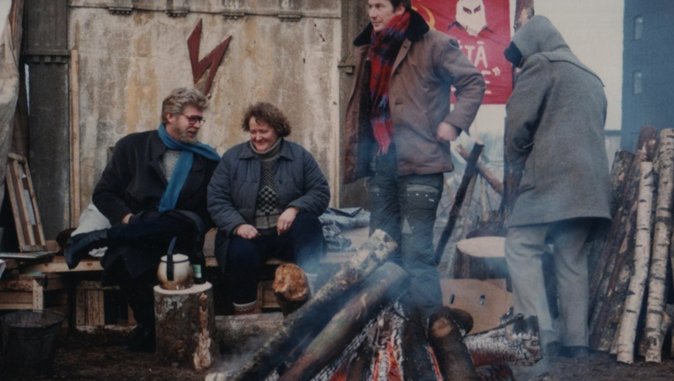
We, our Norwegian team, together with journalists travelled to Latvia and Lithuania as soon as we could after the Soviet attack in January 1991. The Balts refused to accept the Soviet invasion. They did their utmost to protect their governments and media. Here we are with 'activists' in Riga. They light bonfires and stay overnight in tents to demonstrate against the new Soviet assault.
Photo: Aage Myhre, January 1991.

Without the intense media coverage that took place in January 1991 the outcome could well have been another. Occupiers could have re-taken control of the Baltic States. Here a journalist from Norwegian Aftenposten interviews the leader of the Latvian border guards. The international press made a huge effort to make the world know about the atrocities taking place.
Photo: Aage Myhre, January 1991.
- Bookmark :
- Digg
- del.icio.us
- Stumbleupon
- Redit it
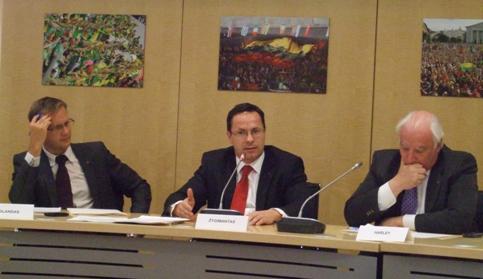
Minister Plenipotentiary Rolandas Kacinskas, Ambassador Zygimantas Pavilionis and Harley Felstein, Project Chairperson.
On the evening of Thursday November 3rd, 2011, the Jewish Lithuanian Heritage Project hosted a roundtable “Think Tank” at the Lithuanian Embassy in Washington D.C. The concept of the think tank originated from a white paper prepared by Harley Felstein, Project Chairperson, and Adrienne Oleck, a Board member.
The meeting drew together concerned intellectuals from the Washington D.C. area and from the Lithuanian Embassy, the Honorable Ambassador Zygimantas Pavilionis and Minister Plenipotentiary Rolandas Kacinskas. The theme of the discussion was, "A comprehensive Five Year plan to improve Lithuanian-Jewish relations: Cultivating Sunflowers."
The Sunflower project will create three core programs focusing on:
1) Communication and Dialogue;
2) Youth engagement and education; and
3) Jewish heritage projects including cemetery restoration.
- Bookmark :
- Digg
- del.icio.us
- Stumbleupon
- Redit it
DnB NORD becomes DNB 11.11.2011 at 11:00
- Posted by - (0) Comment
![]()
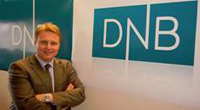
Communication Director Trond Bentestuen at DNB in Norway with the new logo. Development price for the logo has been around LTL 7 millions.
Photo: DnB Nor.
The new name emphasizes that the former DnB NORD now is an integrated part of Norway’s biggest bank, which provides its services in 19 countries worldwide. All the banks and subsidiary companies of the Norwegian financial services group DnB NOR will be included under the DNB brand as part of a worldwide rebranding effort. DNB stands for Den Norske Bank, meaning the Norwegian bank.
The new legal names of the bank and its subsidiary companies as of 11 November 2011:
- AB DNB Bankas (formerly AB DnB NORD Bankas)
- UAB DNB Investicijų valdymas (formerly UAB DnB NORD Investicijų valdymas)
- UAB DNB Būstas (formerly UAB DnB NORD Būstas)
- AB DNB Lizingas (formerly AB DnB NORD Lizingas)
For additional information please visit the bank’s new web page www.dnb.lt.
- Bookmark :
- Digg
- del.icio.us
- Stumbleupon
- Redit it
Not all EU reforms favorable to the Baltics
- Posted by - (0) Comment
![]() Nov 10, 2011
Nov 10, 2011
Baltic Times Interview
by Linas Jegelevicius
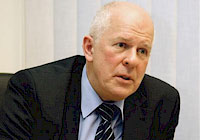
While EU strategists scramble to look for new ways to communicate about Europe, Algirdas Saudargas, member of the European Parliament, a Conservative and one of the builders of the Lithuanian Motherland Union, as well as the former minister of Lithuania’s Foreign Affairs from 1990-1992 and 1996-2000, delivers the “European message” to his constituents in his own way – publishing the center-right magazine, Apzvalga (Review), bringing European policies and national issues just a bit closer to everyone. The MEP, who is also a signatory of the 1990 Lithuanian Independence Act, agreed to answer The Baltic Times questions.
Read the interview here:
http://www.baltictimes.com/news/articles/29968/
- Bookmark :
- Digg
- del.icio.us
- Stumbleupon
- Redit it
Siauliai mulls honouring Reagan with airport
- Posted by - (0) Comment
![]()

Ronald Reagan holding a Lithuanian ‘juosta’ that says “I Love Lithuanians”.
Photo courtesy of Rima Jasiukonis Raulinaitis, California.
Officials in the Lithuanian city of Siauliai say they will discuss renaming a former Soviet strategic air field in honor of Ronald Reagan.
The idea to name Siauliai International Airport in honor of the late U.S. president came from Lithuania’s parliamentary foreign affairs committee, which recently voted in favor of the move.
Reagan is extremely popular in Eastern Europe due to his tough stances during the Cold War confrontation with the Soviet Union, which he dubbed the “evil empire.’’ He is also credited with fostering the spread of democracy in the region.
- Bookmark :
- Digg
- del.icio.us
- Stumbleupon
- Redit it
Gintaré performs in North Ireland next Saturday
- Posted by - (0) Comment
![]()
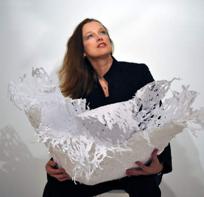
Gintaré will offer an evening of original music influenced by classical, jazz, New Age and pop at Camden's John Street United Methodist Church Saturday, Nov. 19.
CAMDEN, NORTH IRELAND — Music is magic for Gintaré, and she is ready to begin sharing it again with her community and the world.
Gintaré McCurdy has performing under her first name since she was a girl, evolving from a classical trained musician to a teen pop star in her native Lithuania and later spending time in England, where she worked with late Elton John producer Gus Dudgeon to produce a 2000 album that appeared on international pop music charts and became a dance club hit in London.
Read more:
http://waldo.villagesoup.com/ae/story/sharing-the-magic/466912
- Bookmark :
- Digg
- del.icio.us
- Stumbleupon
- Redit it
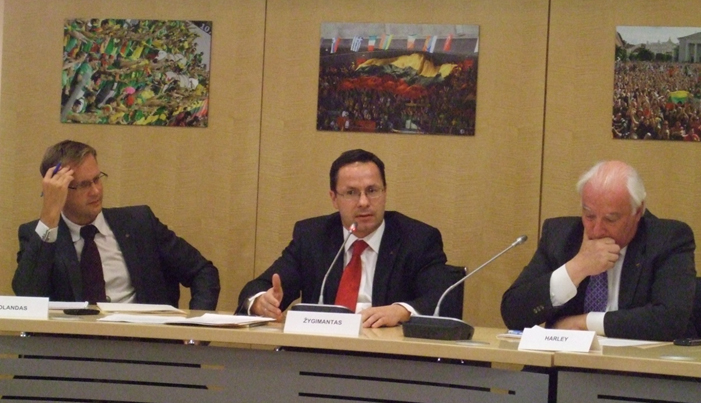
Minister Plenipotentiary Rolandas Kacinskas, Ambassador Zygimantas Pavilionis and Harley Felstein, Project Chairperson.
On the evening of Thursday November 3rd, 2011, the Jewish Lithuanian Heritage Project hosted a roundtable “Think Tank” at the Lithuanian Embassy in Washington D.C. The concept of the think tank originated from a white paper prepared by Harley Felstein, Project Chairperson, and Adrienne Oleck, a Board member.
The meeting drew together concerned intellectuals from the Washington D.C. area and from the Lithuanian Embassy, the Honorable Ambassador Zygimantas Pavilionis and Minister Plenipotentiary Rolandas Kacinskas. The theme of the discussion was, "A comprehensive Five Year plan to improve Lithuanian-Jewish relations: Cultivating Sunflowers."
The Sunflower project will create three core programs focusing on:
1) Communication and Dialogue;
2) Youth engagement and education; and
3) Jewish heritage projects including cemetery restoration.
Ambassador Pavilionis spoke of the harmony that existed for centuries among Lithuanians, Jews and other ethnic group. The Ambassador emphasized the need for a people-to-people dialogue in order to build bridges. The Ambassador stated that only through constructive interchange can the lost connections that existed in the Old World be rediscovered. To demonstrate the Lithuanian eagerness to initiate goodwill, the restitution plan was underway and just two days prior to the think tank meeting, Lithuania was the only Baltic state that supported Israel in voting against Palestinian membership in UNESCO.
For the chairperson, Harley Felstein, the youth are the future - the youth of Lithuania and the youth worldwide. At the meeting, Harley Felstein’s sixteen year old son and student at McClean High School in Virginia, Benjamin Felstein, stated that people are basically all alike and youth from different cultures can bond easily. Benjamin emphasized the youth need to have contact and dialogue. Mark Zaicik, a fourteen year old student at the Sholom Alechim School in Vilnius, Lithuania, stated that the use of social media can improve the interaction between youth but that he hopes to see more personal interaction between Jewish and non-Jewish youth in Lithuanian.
The Sunflower Project is planning a youth exchange and leadership program run by Initiatives in Education. The exchange program will invite Jewish and non-Jewish youth based in Lithuania, Israel, South Africa and America to travel and then continue interaction with each other upon return.
In addition, Ina Navazelskis of the U.S. Holocaust Memorial Museum in Washington D.C. spoke of her upcoming trip to Lithuania for the third such conference for Lithuanian teachers to learn how to teach about the Holocaust in Lithuania
Minister Kacinskas noted the need for interaction between the Jewish and non-Jewish communities of Lithuania. He emphasized that the needed dialogue should be at the grassroots level of people, not between governments. Diana Dvidutis, President of the Lithuanian American Committee of Washington DC agreed that the focus should be on the commonalities we share and the future.
The issues facing Lithuania are similar to the challenges facing Estonia and Latvia. Two individuals from the Baltic States are members of the think-tank and brought a regional perspective to the group. Adir Aronovich, an attorney, gave a brief history of the evolution of the Jewish community within Estonia. Karl Altau, managing director of the Baltic American National Committee, reported that the need to education and improve accurate information to the people living in the Baltic region.
The think tank concept will be replicated in Vilnius, Tel Aviv and Cape Town, South Africa.
The Sunflower Project is planning monthly meetings, dialogues in various communities, cultural events, and the restoration of cemetery sites in Lithuania and most importantly, the exchange of ideas. People to People!
For more information or to participate, please contact Harley Felstein at harleyfelstein@yahoo.com
- Bookmark :
- Digg
- del.icio.us
- Stumbleupon
- Redit it
- Posted by - (0) Comment
How I came to Lithuania 21 years ago (3 of 6)
Some private memories by Aage Myhre, VilNews Editor-in-Chief
aage.myhre@VilNews.com
Nov 1990: Oil, a girl and
a satellite system


The next day another Norwegian, from STATOIL, arrives in Vilnius. Last summer the company gave financial support to our works for Lithuania. Now we have invited them to have a look at opportunities in the Baltics.
The two other Norwegians travel 300 kilometres northwest of Lithuania the following day, to Mazeikiai Nafta, the country's oil refinery. They come back late that night. With a new business idea: to extract oil from the refinery site. They say that they have waded in black mud, full of oil from numerous leaks from pipes and tanks. They are both shocked at what they have experienced. Soviet Union in a nutshell.
My task, when my friends are wading in oil, is to meet with Lithuania's communications minister, Kostas Birulis (who strangely is fluent in English).
The reason is that Landsbergis, during his visit to Oslo three months earlier, asked us if it was possible to get a gift from Norway, a satellite antenna / telephone system that could be installed in the Lithuanian parliament. He was afraid that the Soviets could again try to take control of Lithuania and cut the normal telephone connections.
Our task after his visit to Oslo was to try to persuade Norwegian politicians and our Norwegian telecom to provide and install such a gift in Lithuania. Telecom's export director was my great supporter of this. He managed to convince Telecom's CEO to go for the unusual project. A leading Norwegian attorney, Leon Bodd, who later became the General Consul of Lithuania in Norway, was also of great help.
Communications Minister Birulis accepts the agreement which I put before him this November day in 1990. In 1991, all details about the financing and installation of the system were settled in Norway and in autumn it was all completed. A huge satellite dish with 'Telecom' logo adorned the roof of parliament for many years to come. A prominent symbol of solidarity and bilateral thinking.
To read more, go to our SECTION 13 – THE WORLD IN LITHUANIA
- Bookmark :
- Digg
- del.icio.us
- Stumbleupon
- Redit it
- Posted by - (3) Comment
How I came to Lithuania 21 years ago (3 of 6)
Some private memories by Aage Myhre, VilNews Editor-in-Chief
aage.myhre@VilNews.com
Nov 1990: Oil, a girl and
a satellite system


The next day another Norwegian, from STATOIL, arrives in Vilnius. Last summer the company gave financial support to our works for Lithuania. Now we have invited them to have a look at opportunities in the Baltics.
The two other Norwegians travel 300 kilometres northwest of Lithuania the following day, to Mazeikiai Nafta, the country's oil refinery. They come back late that night. With a new business idea: to extract oil from the refinery site. They say that they have waded in black mud, full of oil from numerous leaks from pipes and tanks. They are both shocked at what they have experienced. Soviet Union in a nutshell.
My task, when my friends are wading in oil, is to meet with Lithuania's communications minister, Kostas Birulis (who strangely is fluent in English).
The reason is that Landsbergis, during his visit to Oslo three months earlier, asked us if it was possible to get a gift from Norway, a satellite antenna / telephone system that could be installed in the Lithuanian parliament. He was afraid that the Soviets could again try to take control of Lithuania and cut the normal telephone connections.
Our task after his visit to Oslo was to try to persuade Norwegian politicians and our Norwegian telecom to provide and install such a gift in Lithuania. Telecom's export director was my great supporter of this. He managed to convince Telecom's CEO to go for the unusual project. A leading Norwegian attorney, Leon Bodd, who later became the General Consul of Lithuania in Norway, was also of great help.
Communications Minister Birulis accepts the agreement which I put before him this November day in 1990. In 1991, all details about the financing and installation of the system were settled in Norway and in autumn it was all completed. A huge satellite dish with 'Telecom' logo adorned the roof of parliament for many years to come. A prominent symbol of solidarity and bilateral thinking.
Telecom rejects later an offer to become Lithuania's first mobile phone operator. They believe the market is too small. How wrong can one be? STATOIL took the market more seriously and established what became Baltic's leading chain of petrol stations.
I asked her for a dance - now we have danced for 20 years
My first stay in Lithuania lasts four days. The last evening before leaving, after first having had a refreshing walk in the great Vingis park right by the hotel, we, the three Norwegians, are eating dinner in the Hotel Draugyste’s restaurant.
Then she enters, a beautiful young girl together with five men. This is a challenge a recently divorced Norwegian like me cannot resist. I offer her to dance with me. She accepts and the restaurant orchestra plays beautifully. He who claims to be her boyfriend and the four others do not look happy.
She lets me know her name, Egle Bakaityte. She was born and raised in Vilnius but now works in Amsterdam. She is back home in Vilnius only to renew her visa. And so ends the third and last day of my very first visit to Lithuania. It is the 22nd of November 1990.
I go back to Lithuania two to three weeks later. Now with a representative of the Norwegian 'fashion industry'.
Famous for standing behind well-known brands in this sector. I meet Egle also during this visit. A few days go by. We travel with our new guests to the spa town of Druskininkai in southern Lithuania. A romance seems to be brewing.
Egle and I keep in touch when I'm back in Norway again. New Year's Day 1991 she calls me at five o'clock in the morning. I feel uneasy, wondering if something is wrong. Calling this early is not exactly normal. But no, nothing wrong. Only that she had ordered the call the day before and only now being put through ... The Soviet phone system simply works like that... One has to call the ‘central’, and then it’s up to them when they will try to connect you to the one you want to talk to. If one rings a western country, this may take up to a day. The Norwegian satellite facility is not yet installed.
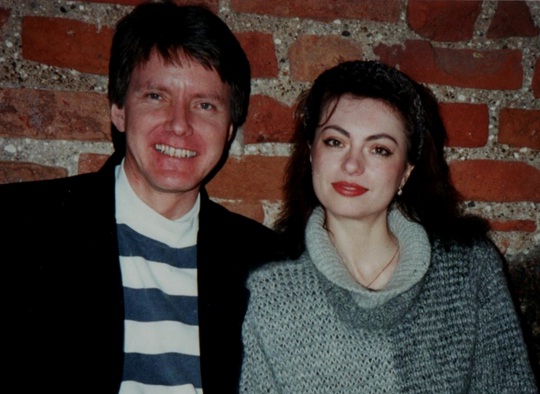
I meet Egle the third day of my very first visit to Lithuania, in November 1990. She 25, I 37.
- Bookmark :
- Digg
- del.icio.us
- Stumbleupon
- Redit it
- Posted by - (0) Comment
New writer for VilNews
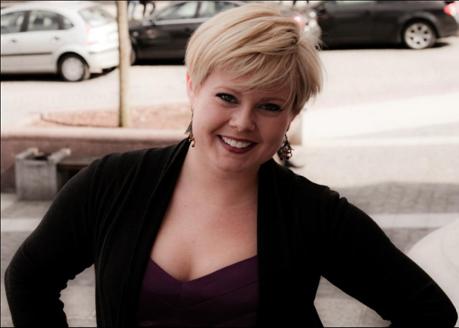
Associate Editor Emily Daina Šaras.
Emily Daina Šaras is a musician, anthropologist, and activist from Hopedale, Massachusetts, USA living and working in Vilnius, Lithuania.
She is currently working as Director of her new music and tolerance project, Dainos for Diversity, and studying vocal performance in the studio of Sigutė Stonytė at the Lithuanian Music and Theatre Academy.
Her music studies and human rights work, both extensions from her work as a Fulbright Fellow in 2010-2011, are supported by a grant from the United States Embassy in Vilnius, Lithuania.
Ms. Šaras graduated Magna cum laude with Departmental Honors from Wellesley College in May 2010 as a double major in Anthropology and Music, focusing her studies on Classical vocal performance. She performs in Lithuania at various events and concerts sponsored by The American Center, and over the last year, she has performed in the Rokiškio Classical Music Festival, the Sacred Music Festival, and at Vilniaus Rotusė.
- Bookmark :
- Digg
- del.icio.us
- Stumbleupon
- Redit it
- Posted by - (3) Comment
Holocaust in Lithuania
Some time ago a reader in the USA wrote the following one-sentence ‘letter’ to the editor of VilNews:
"May Lithuania rot in hell for a 1000 years."

This ‘letter’ resulted in several posts and comments from our readers around the world. We in the editorial team have been very impressed by how informative and balanced most of the posts have been. Probably it is this kind of open, intelligent debate that is needed to build bridges across the gap that emerged in the relationship between Jews and Lithuanians during and after World War II. We thank all who participate, not least the following four: Olga Zabludoff, Donatas Januta, Didier Bertin and Yves Plasseraud:
- Bookmark :
- Digg
- del.icio.us
- Stumbleupon
- Redit it
- Posted by - (2) Comment
Donatas Januta: Reply to Olga Zabludoff re Holocaust in Lithuania
To say that there were other genocides does not diminish the Holocaust

Donatas Januta
Dear Olga,
Apparently, we agree that Jews and Lithuanians both suffered greatly during World War II. And we both agree that Timothy Snyder’s Bloodlands is an excellent book. But, there are still a few things that we don’t agree on. And I hope that we can disagree without necessarily imputing bad motives to each other.
I do not dispute Dov Levin’s claim that Jews were an integral part of Lithuania’s economy. But the Jewish lending of money to the Polish kings and other nobles that you brought up, which enabled them to continue their extravagant lifestyles at the people’s expense, had both a short-term and a long-term negative impact on the country and the lives of Lithuanians. Yes, the Jews were also mainly merchants, traders, shopkeepers and craftsmen. But to evaluate their contribution to the country’s economy in those fields is a little hard, because Jews had a monopoly in Lithuania in those fields, and it is acknowledged that all monopolies, with their price-fixing, stifling of competition, and other evils, generally have a negative impact on a country’s economy. That’s why in the US we have anti-trust laws, anti-price-fixing laws, etc. Lithuanians did not have any of those protections.
One result was that, after 600 years of Lithuanians and Jews living side by side, on the eve of World War I, Lithuania was an economically depressed and backward country. If I had to voice an opinion on whether the Jewish contribution to the country’s economy was positive or negative, I would say that at best it was a wash. I.e., the Jews kept their part of the machinery of the economy – such as it was - running during that time, but there were no noticeable gains or improvements, especially if one compares to the adjacent countries to the immediate West. But I am willing to simply say that Lithuanians and Jews lived peacefully side by side, but separate, for 600 years, that they interacted almost exclusively only in the marketplace, and leave it at that.
You say there was only one genocide, and to say something different is to distort the history of World War II. Yet, for someone to state that the Holocaust was the most terrible genocide in European history, but that there were other genocides as well, does not at all distort or diminish the significance of the Holocaust. Historian Norman M. Naimark, in his book Stalin’s Genocides, is not the only historian and social scientist who agrees that the generally accepted definition of genocide is wider than the narrow UN definition of the crime of genocide.
But let’s go back to the limited 1948 UN definition which states that the crime of genocide under the UN charter consists of acts which are committed with intent to destroy, in whole or in part, a national, ethnical, racial or religious group. Moscow’s intent, in which it succeeded, with respect to Lithuania, was to decapitate the nation. In the executions and mass deportations to the gulag of 1941, 1944-45, 1948-49, and 1951, the country lost perhaps 90% of its political leaders, army officers, clergymen, administrators, teachers, and other professionals. That was the Soviet intent, to destroy the leadership of Lithuania, so that they could easier eradicate Lithuania’s culture and history from the remaining population. As Molotov, or one of his henchmen, said “There will be a Lithuania, there just won’t be any Lithuanians.”
As I said, I hope that we can disagree on some things without imputing bad motives. For example, Dovid Katz’s article in the November 2, 2011, Jerusalem Post, does nothing other than perpetuate further disagreements and enmity between Lithuanians and Jews. It is exactly the kind of gratuitous demonization of Lithuanians that Yves Plasseraud deplored in his article which started this whole discussion of ours.
Lithuania voted against full Palestinian membership in UNESCO, i.e., voted in support of Israel’s position, so Dovid Katz states that that vote is merely an example of Lithuania’s “duplicity”, and uses that as an opportunity to trot out his full arsenal of attacks against Lithuania. If, of course, Lithuania had voted the other way, against Israel’s position, Katz would then have said that the vote showed Lithuania’s “antisemitism”, and then written the same article against Lithuania. We can never win, can we? I expect the next time that Katz reads about the price of fish in Lithuania, he will say “What duplicity, the Lithuanians are talking about fish just to divert attention from the suffering of Jews”, and will again write the same article.
As in all societies, there have been good people and bad people on both sides, but I believe that the majority of Jews and of Lithuanians have always been good people. And though, Lithuanians and Jews lived side by side but separately, there were times when significant numbers of each consciously helped one another for the common good. One of those times was at the beginning of the Lithuanian Republic in 1918-1925, when Lithuanian Jews helped Lithuania attain independence, and Jews received a large amount of autonomy within the country. But that’s another story (see, e.g., Šarūnas Liekis, A State within a State?).
We both agree that Jews and Lithuanians suffered greatly during World War II. We both agree that the Holocaust was the most terrible genocide in European history. So, I hope that even though we disagree about some of the terminology, i.e., the term genocide, or some of the other sub-issues, that we can view our disagreements as simply differences of opinion.
- Bookmark :
- Digg
- del.icio.us
- Stumbleupon
- Redit it
Russian planes spark NATO scramble in Lithuania
- Posted by - (0) Comment
![]()

Last Monday two Russian AN26 transport aircrafts and a TU134 bomber flew in succession from Kaliningrad to Russia itself, and an IL20 intelligence-gathering plane flew in the opposite direction.
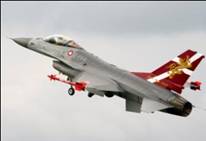
Four Danish F-16 fighters, which currently police the skies of Lithuania, Latvia and Estonia, took to the air twice to escort the Russian planes.
NATO jets were scrambled Monday as four Russian air force planes flew near the territory of the Baltic states,
Lithuania's defence ministry said, adding that the unusual number was a cause for concern, AFP reported.
Defence ministry spokeswoman Ugne Naujokaityte said that four Danish F-16 fighters, which currently police the skies of Lithuania, Latvia and Estonia, took to the air twice to escort the Russian planes.
Two AN26 transport aircraft and a TU134 bomber flew in succession from Russia's Baltic territory of Kaliningrad to Russia itself, and an IL20 intelligence-gathering plane flew in the opposite direction.
While their path over neutral waters did not ultimately encroach on the Baltic states' airspace, the flurry of flights was unusual in an area that normally sees only a few Russian aircraft transit every few weeks.
"The intensity of these Russian planes' flights raises concern. It proves once again the importance and necessity of the NATO air police mission in Baltic states," Naujokaityte said.
The Baltic states broke away from the crumbling Soviet Union in 1991 after five decades of communist rule and joined NATO in 2004.
- Bookmark :
- Digg
- del.icio.us
- Stumbleupon
- Redit it
- Posted by - (1) Comment
How I came to Lithuania 21 years ago
Some private memories by Aage Myhre, VilNews Editor-in-Chief
aage.myhre@VilNews.com
1. Summer of 1990:
Landsbergis to Norway
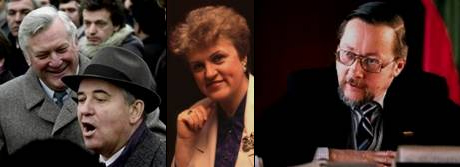
![]()
2. November 1990:
A Volga journey from Riga

![]()
3. Nov 1990: Oil, a girl and
a satellite system


![]()
4. January 1991:
Soviet rolls back

![]()
January 1991:
5. With Landsbergis behind barbed wire and homemade barricades
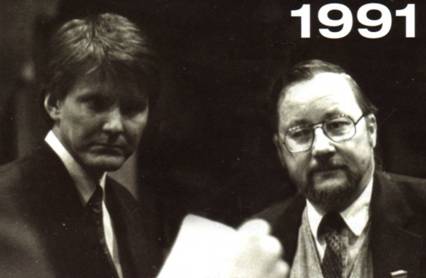
![]()
6. 1991: Oslo and Vilnius
become twin cities

- Bookmark :
- Digg
- del.icio.us
- Stumbleupon
- Redit it
Historians in the West don’t think that the Baltics and their people are important
- Posted by - (2) Comment
![]()

Dominican Father David O’Rourke, one of the two priest producers of “Red Terror on the Amber Coast.” Father O’Rourke is director of The Tatra Project (www.tatraproject.org), which provides educational resources and media on life under the former Soviet Union.
I lived and worked on and off in Vilnius, from 2000 until about 2009. Part of my work involved research in the film and photo archives that led to the documentary film, Red Terror on the Amber Coast. I was the writer and producer. I have only one point I want to make here, but I think it is important.
From the time that the Soviets first occupied the Baltics after the Molotov-Ribbentrop Pact until the fall of the Soviet system, essentially all the information about life in the Baltic Republics came from the occupying governments – Soviet and Nazi. Occupiers have their own agenda. Telling the truth about what they were doing in the countries they occupied was not one of them. To the contrary, both the Soviets and the Nazis were expert in producing self-promoting propaganda. So I believe it is both naïve and foolish to look to news and information reports produced by either of these regimes about the occupation years as though they were reliable. My own view is that relatively little concerning life during these years is known today outside these countries and their several diasporas. And very little is known because historians in the West don’t think that the Baltics and their people are important enough to their own studies to worry about.
David O'Rourke
California, USA.
- Bookmark :
- Digg
- del.icio.us
- Stumbleupon
- Redit it
VilNews e-magazine is published in Vilnius, Lithuania. Editor-in-Chief: Mr. Aage Myhre. Inquires to the editors: editor@VilNews.com.
Code of Ethics: See Section 2 – about VilNews. VilNews is not responsible for content on external links/web pages.
HOW TO ADVERTISE IN VILNEWS.
All content is copyrighted © 2011. UAB ‘VilNews’.

 Click on the buttons to open and read each of VilNews' 18 sub-sections
Click on the buttons to open and read each of VilNews' 18 sub-sections 
























.jpg)



